Controversy and movies go hand in hand. I think, just like any form of art, movies are extremely subjective in nature. So, no one really knows whether a film will be considered to be a masterpiece or be condemned or for that matter be a subject of controversy. In this list, we try and take a look at the list of movies that garnered enough controversies over the years to make them either gain a cult status or being completely shunned. Please appreciate that we are not looking at movies from a point of view whether they were good or bad. We have considered only those films that historically were controversial to a significant chunk of population.
The films mentioned below have all been made by notable directors venturing into the macabre to bring out complex storylines. Here is the list of top most controversial movies of all time. You can watch some of these most controversial movies on Netflix, Hulu, YouTube, or Amazon Prime.
18. Do The Right Thing (1989)

Spike Lee is a controversial figure; his public comments and tirades for his political causes have often embroiled him in public spats and controversies. His cinema has always been part of the American social discourse due to their exploration of race relations and colorism. And ‘Do The Right Thing’ is one his most important works; an exploration of simmering racial tensions in a Brooklyn neighborhood, the movie initiated a huge public debate on the actions of its lead character, and many accused the film of inciting racial riots.
However, none of this had any bearing on its Cannes premiere. All went well, the movie received excellent reviews and looked set to win the Palme d’Or. That was until the Wim Wenders led jury decided to award a somewhat clueless looking Steven Soderbergh for his indie gem ‘Sex, Lies and Videotape’. The controversy however wasn’t that the film was snubbed, but the reason that was cited for the same. Wenders stated that he didn’t award the film because the lead character was “unheroic”. Of course, Spike wouldn’t take it lying down; he retorted: “I’ve got a Louisville Slugger at home with Wim Wenders’ name on it.”
Read More: Best Time Travel Movies of All Time
17. La Dolce Vita (1960)

One of the greatest films by the master of Italian cinema, Federico Fellini, ‘La Dolce Vita’ is a masterpiece. A comedy drama following a gossip-writer over a week in his hopeless pursuit of love, ‘La Dolce Vita’ is one of Fellini’s greatest works. And the audience at Cannes were quick to recognize the movie’s genius, as the reviews were exceedingly positive and looked to set to win big. But, not all were happy. Fellini parodying Jesus and mocking the Catholic Church didn’t go down well with the Vatican. The festival was pressured not to screen the film and the official Vatican publication panned the movie for its religious commentary.
Cannes, however, stuck to its ground as the movie went on to win the Palme d’Or, and is today regarded as one of the greatest films ever. Conservative Spanish dictator General Franco too was offended by the film and banned it in Spain, where it remained in place until his death in 1975.
Read More: Most Overrated Movies of All Time
16. Viridiana (1961)

Luis Buñuel is one of the greatest and most accomplished filmmakers of all time; his taboo themes and subversive narrative techniques have always confounded audiences. The radical social commentary and sexual subtext in his cinema had made him a controversial figure, but things came to a head when he premiered ‘Viridiana’ at Cannes. Buñuel, a staunch atheist, mercilessly mocked the Catholic Church and its practices while continuing with his exploration of sexuality and human nature.
The movie was a rage at its premiere, earning itself great reviews and ultimately won the Palme d’Or. To this day, ‘Viridiana’ is considered to be one of the greatest Palme d’Or winners and one of the greatest films ever made, but at the time, two very powerful parties were not entirely pleased with the movie’s success. The Catholic Church was incensed by the movie’s critical acclaim, and their official newspaper called the film ‘blasphemous’. The sequence where the miscreants pose for a The Last supper-esque photo and the ambiguous ending draped in sexual innuendo were particularly offending. Much like the ‘La Dolce Vita’, General Franco tried to get ‘Viridiana’ thrown out of the festival, and when that proved unsuccessful, he had it banned in Spain. The movie, however, survived the storm and is today regarded as a cult-classic.
Read More: Biggest Box Office Flops of All Time
15. Crash (1996)

Nope, this is not about the 2004 Oscar winner (which probably would never have made it into a Cannes lineup). This is about David Cronenberg’s befuddling and mysterious psychological drama about a group of individuals who are sexually aroused by car-crashes! Yep, you heard that right; Cronenberg, the master of subversive and morally ambiguous themes crafted a thoroughly distressing portrait of modern life in the midst of technology. Of course, when a film is this taboo, it would have been surprising had it not invited controversy, and expectedly so, the premiere was received as expected. Audiences were stunned, nauseated; some passed out, others left the screening in disgust. The reviews were equally unforgiving; while some outright trashed the movie, others were too confused as to what to make of it.
The movie won the Jury Prize, a decision which was welcomed by further derision and disgust. A movie like ‘Crash’ was always bound to attract hate, and I honestly think that’s what Cronenberg was gunning for. But say what you will, the movie will affect you like none other and is a daringly provocative work from a master filmmaker.
Read More: Best Heist Movies of All Time
14. The Exorcist (1973)
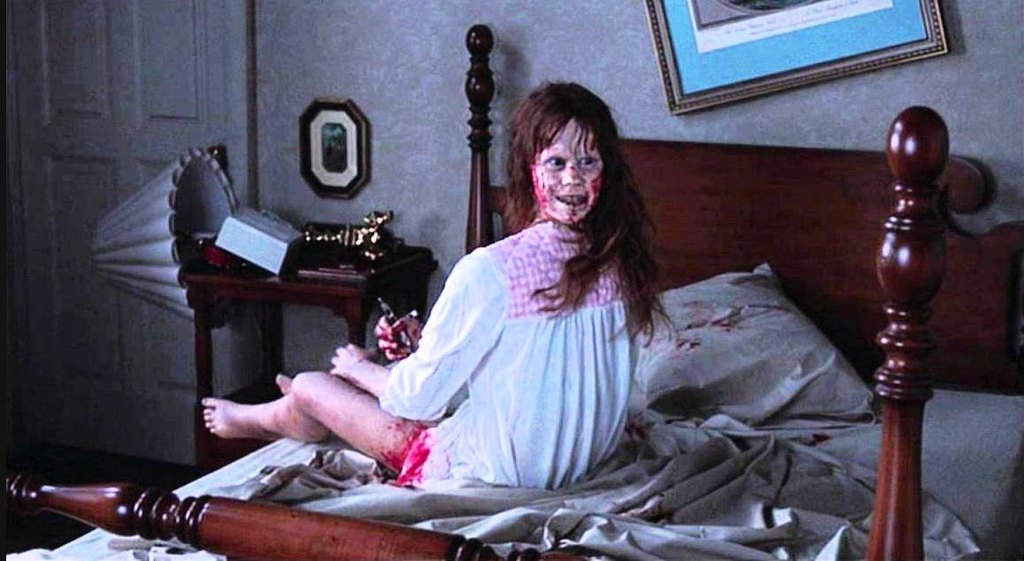
The scariest movie of all time is not shy of the controversy it generated in its wake. Directed by William Friedkin, ‘The Exorcist’ deals with the possession of a 12-year-old girl and the ultimate exorcism conducted by two priests. The film fiddles with psychology, belief and a mother’s love, but all these seemed less apparent as they were buoyed down by the intense scenes which have gained a cult status since then. The entire film set was supposed to be cursed with spooky incidents like freak accidents happening to several members of the crew and their families. The projectile vomiting and spider walk were deemed too disturbing even for a horror flick, with many having hallucinations and temporary insanity after viewing this film. The cuss words were frequent and were scarier coming from a 12-year-old girl. The whole effect was disturbing and an ‘R’ rating seemed too lenient.
‘The Exorcist’ has a massive cult following inspiring a number of spin-offs over the years and making the horror film-makers look at the subject from a different point of view. Seldom were the films of this genre gratifying cinematically but with ten (10) Academy Award nominations and the first horror movie to be nominated in the Best Film category, ‘The Exorcist’ stands as an exception. It is a difficult watch certainly but it is an important watch for all cinema lovers.
Read More: Best College Movies of All Time
13. Blue is The Warmest Color (2013)

Abdellatif Kechiche’s poignant exploration of a coming-of-age lesbian relationship is not only one of the finest films of the decade so far, it was also one of the most talked about movies when it premiered at Cannes in 2013. As is so often the case, the bone of contention here was a 7-minute long, explicit unsimulated sex scene between the two lead actresses.
The initial response to the movie after its premiere was phenomenal; despite the few walkouts and allegations of an anti-feminist tone, the movie received rave reviews from the critics. The trouble began when reports emerged of poor working conditions while filming and the director’s exploitative filming practices. It all exploded when the actresses themselves went public, accusing the director of being exploitative, which triggered a strong reaction from the director, further emboldening the movie’s detractors. Ultimately, in an unprecedented move, the Steven Spielberg-led jury, while announcing the Palme d’Or for the movie, decided to award both actresses (Adèle Exarchopoulos and Léa Seydoux) along with Kechiche.
Read More: Best Visually Stunning Movies of All Time
12. Twin Peaks: Fire Walk With Me (1992)

Premiered a year after the second season of the show aired in 1991, the feature film was supposed to be both a sequel and a prequel and was expected to answer some of the popular questions that arose from the show’s twisted finale, but Lynch being Lynch, it was exactly the opposite. The movie was incessantly jeered and booed at its premiere, with several prominent filmmakers and critics walking out. In a curious case of the pot calling the kettle black, Quentin Tarantino, who was among the audience, later commented, “after I saw ‘Twin Peaks: Fire Walk with Me’ at Cannes, David Lynch had disappeared so far up his own ass that I have no desire to see another David Lynch movie until I hear something different”. The reviews were no kinder as Lynch was unanimously panned. However, in the years since its release, the movie has fared better with cinephiles and while it is far from his best, it still is a fascinating piece of cinema.
Read More: Best Screenwriters of All Time
11. Salò, or the 120 Days of Sodom (1975)
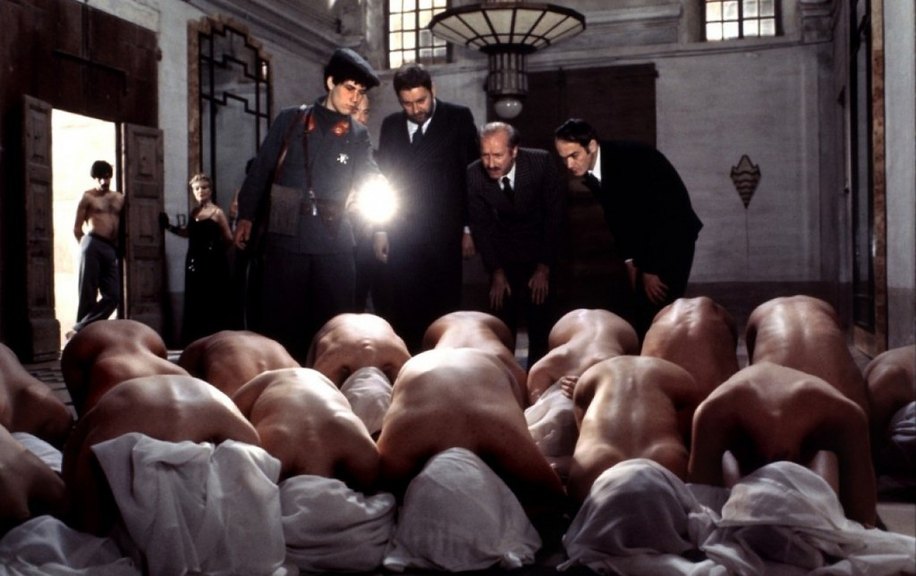
A Fascist empire is inhuman and this 1975 Italian-French horror art film by Pier Paolo Pasolini brings out that animalistic part of the human civilization in the meanest fashion possible. It chronicles the story of the sickening pleasures of the lords and how they exploit 18 young men and women in devious manners. The tale is narrated in an unflinching manner, making it highly intense. The brutal murders, rape for fun and sadism make it one of the most difficult films to watch. It is gory and hurts the viewer almost physically every time it is watched. Some of the scenes are so disturbing that it becomes a nightmare. The torture is unapologetic but poetic justice is served in the end.
Quite unsurprisingly, ‘Salò’ is banned in several countries for its graphic content and violent portrayal of rape, torture and murder. In Ohio, a policeman arrested the owner of a local video store for the possession of an uncut version of the film. The movie speaks of the inhuman nature of the high class modern feudal societies and their mean streaks but somehow that message gets overshadowed by the raw power of violence. Several actors and filmmakers have cited ‘Salò’ as one of their favourite films and it remains still as perhaps the most controversial movie of all time.
Read More: Best One Sided Love Movies of All Time
10. A Serbian Film (2010)
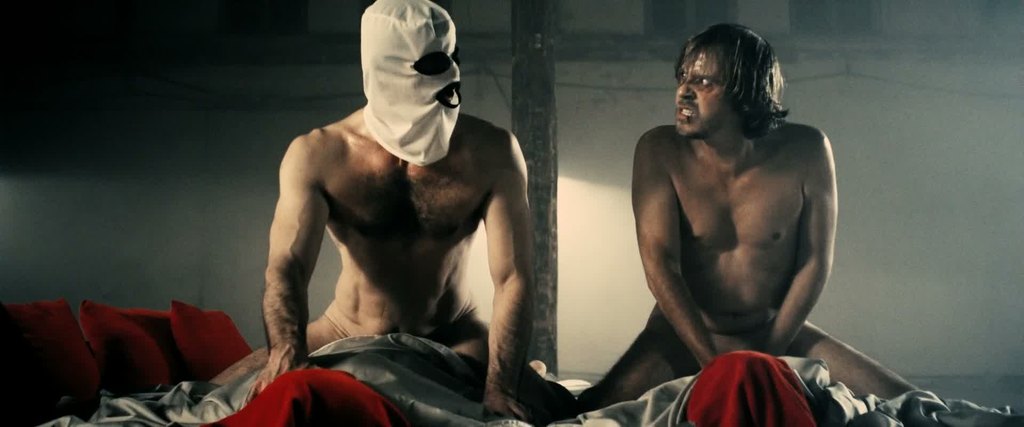
Aptly named ‘A Serbian Film’, directed by Srdjan Spasojevic, this movie tells the story of a porn star drafted into making an art film only to discover it to be a snuff film with child rape and necrophilia as its themes. Based on wider subtexts of the postwar society and man’s willingness to do anything to provide for his family, this 2010 Serbian horror piece has been cited as a parody on the government sponsored films which are politically correct. The movie was extremely gruesome with the audience given a shot of tequila before its premiere at the Cannes Film Festival. Focusing on taboo themes like necrophilia and newborn rape, ‘A Serbian Film’ is a sickening watch at best.
The film was banned in several countries like Malaysia, Singapore, New Zealand and Australia. In other countries like Serbia and United States, it was a critical hit, with several critics praising the raw nature and citing the film to be one of the most legitimate films ever made. The movie dares the audience to delve into its depth past the layers of horror and sadism and discover the true meaning behind. It is a gruesome watch certainly.
Read More: Best Date Night Movies of All Time
9. Cannibal Holocaust (1980)
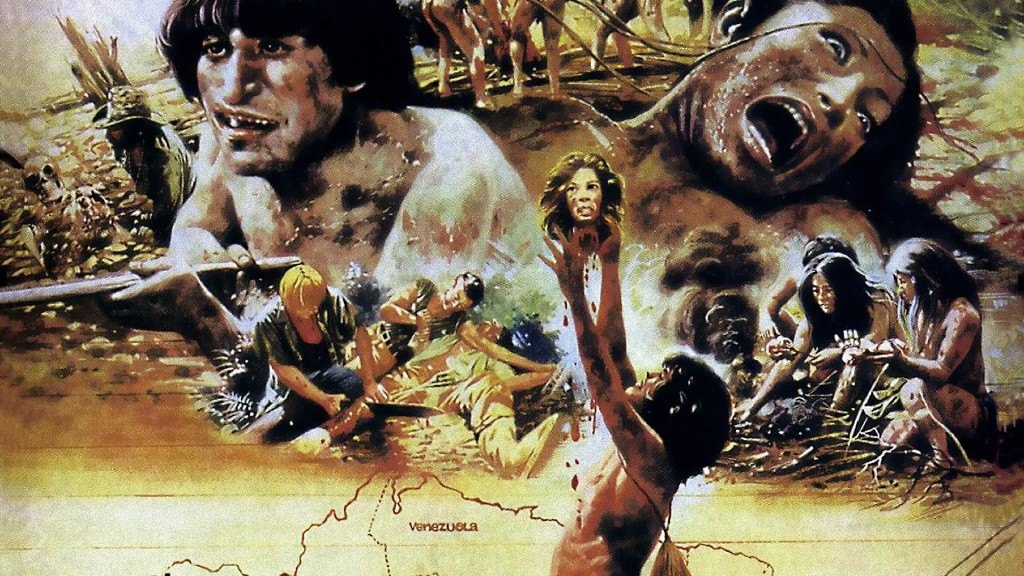
Ruggero Deodato’s 1980 take on cannibalism was originally supposed to be a question on who the cannibals actually are. In a civilized vs uncivilized debate, the film follows a rescue team as they travel to the Amazon to find out what happened to a missing film crew. Some grueling footage were discovered and bartered with from the indigenous tribes which when later viewed answered the film’s question. To state it as raw would certainly be an understatement. ‘Cannibal Holocaust’ was unapologetically animalistic, with the director opting to show cruelty and vandalism in its naked form. The violence and rapes seemed uncannily real. The deaths were gruesome at best and the stark animal cruelty filmed didn’t help it out of the controversy pool.
Deodato faced snuff accusations involving the alleged murder of his film crew and the tribals and had to stand trial. Although he was cleared of all charges, the film was banned in several countries like Italy (once again), New Zealand, Australia, Norway and Finland for obscenity, violence and animal cruelty. In the UK, the film was released with 6 minutes of cuts much later in 2001. It was a masterpiece by Deodato though, with stalwarts like Sergio Leone praising the efforts of the director to bring realism in the screen. He raised a moral question about the civilized society and gave its answer outspokenly. It isn’t much of a surprise that the viewers (members of the real world) couldn’t digest the truth.
Read More: Biggest Movie Plot Holes of All Time
8. Antichrist (2009)
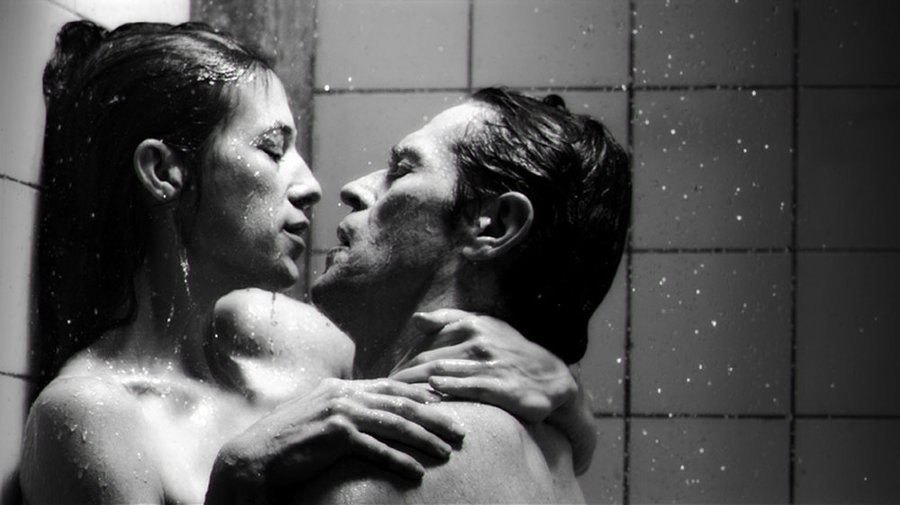
Of course, there had to be a Lars von Trier film in here. The enfant terrible of contemporary cinema, von Trier has carved a niche for himself with his provocative and disturbing works of art that at times veer on self-indulgence. But, he is a master provocateur, and his movies are never uninteresting. We had a wide range of Trier’s Cannes controversies to choose from, from Trier’s Hitler joke, to his outrage against not receiving the Palme d’Or for ‘Europa’, but we finally settled on his most disturbing and controversial work ‘Antichrist’. Antichrist’ transcends all of these into plain macabre. It tells the story of a mother slowly getting unhinged after the death of her son while she was making love with her husband. Lars shows sadomasochism in an artistic way, and this art is violent
The film is powerfully made and its symbolism and imagery are literally thought-provoking. It has scenes of the unsimulated sex, castration, genetic mutilation which expectedly led to a huge uproar. Numerous episodes of fainting and puking were reported as audiences and critics couldn’t digest the film’s graphic portrayal of grief and mental degradation. The critics were unrelenting in their criticism as the movie’s social, emotional and ideological themes were ignored in favor of trashing its explicit gore and its inherent misogyny. Even as Charlotte Gainsbourg won for daring performance, the Cannes Ecumenical Jury gave the film an “anti-award” and called it “the most misogynist movie”.
Read More: Best Divorce Movies of All Time
7. Fahrenheit 9/11 (2004)
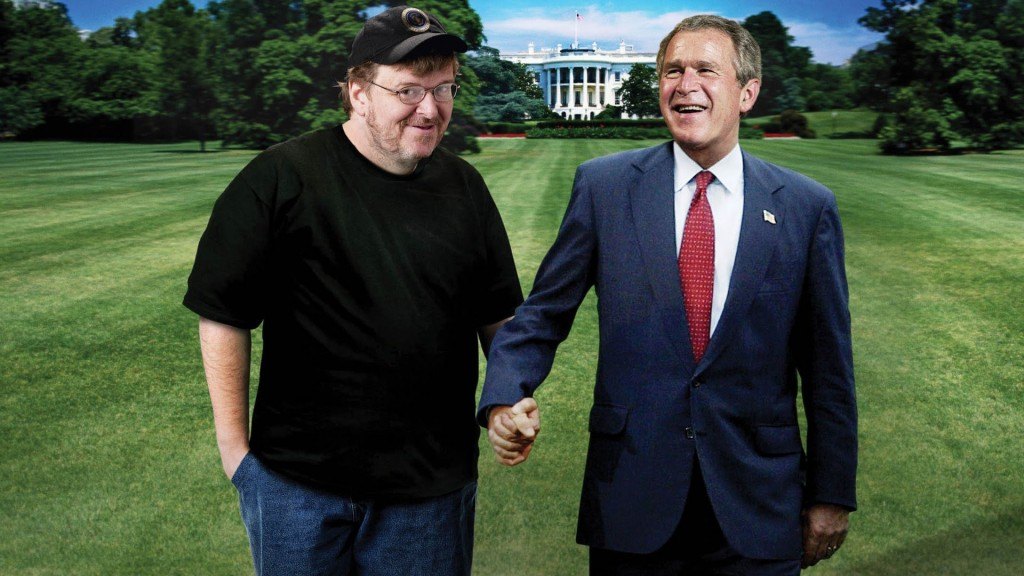
If you make a film highlighting the errors and labelling the World’s most powerful leader as a villain, you are bound to spark controversy. Political Commentator Michael Moore did exactly that in 2004 with his documentary on the erstwhile President of the United States George W. Bush. The documentary focused on the negativities of George W. Bush’s reign, particularly during his 2000 election win and the September attacks. It also spoke of Bush’s ties with the bin Laden family and his steps in invading Iraq.
American filmmaker and activist’s Michael Moore’s documentary was making the headlines well before it premiered at Cannes. A scathing indictment of the Bush presidency and the administration’s War on Iraq, the film was released in an election year when Bush was seeking reelection, and was widely panned by conservative commentators and public intellectuals for being factually incorrect and called the film propaganda. When it did premiere at Cannes, it was widely praised, and received one of the longest standing ovations in the festival’s history.
The controversy arose when the Quentin Tarantino-led Jury announced the Palme d’Or for the movie. Accusations were made that the decision was political, an opinion which was echoed by the Festival director, who commented the next year that juries should never give awards based on politics and that only the film-making should be judged. Tarantino, however, continues to stand by his jury’s decision, and has maintained that it was the art of cinema that was awarded, and not the politics.
Read More: Best Movies Based on Agatha Christie Novels
6. The Passion of the Christ (2004)
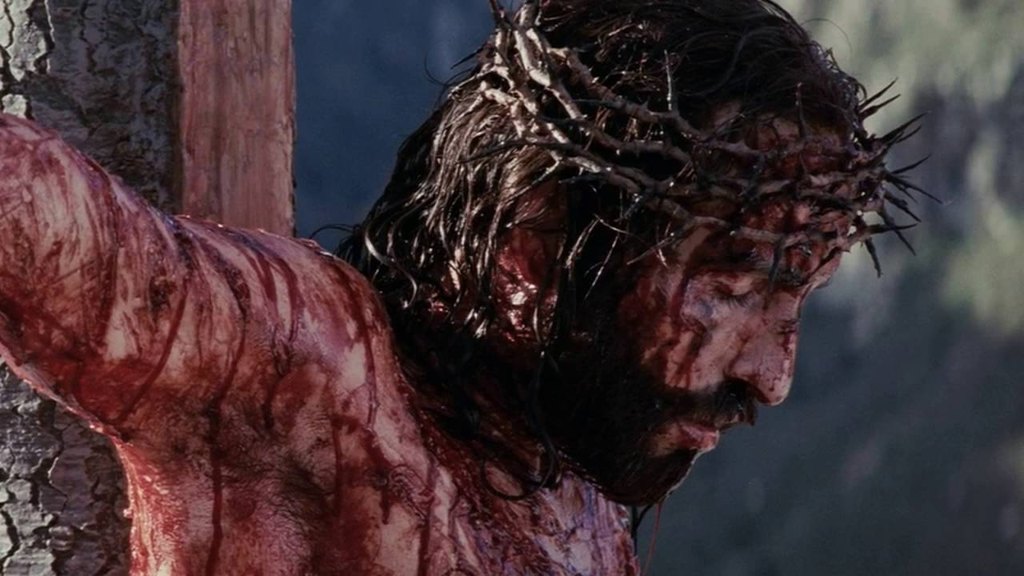
A religious movie always has the risk of venturing into the roads of controversy. Mel Gibson’s 2004 depiction of the final 12 hours of Jesus Christ was no different. Although it was never banned outright, it did face a serious backlash from the Jewish community as it was alleged to be highly anti-Semitic in nature. ‘The Passion of the Christ’ was extreme with most of the film dedicated to showing the level of torture that was meted out to Jesus Christ and the pain he had to undertake as The Saviour. This included a 10-minute flogging scene and a mother having to watch her son being nailed to a cross and being left to die.
Supposedly the film was historically inaccurate or so the churches claimed, leading to a debate between the maker and the religious heads. Gibson argued from his artistic point stating his liberty to imagine certain gaps in the story. The debate cooled down though and the film received three Academy Award nominations. Some critics had panned it though stating that the violence provided a distraction in realizing the true nature of the film itself. Nevertheless, it garnered worldwide popularity, making it to be one of the highest grossing movies of all time.
Read More: Best Femme Fatales in Movies
5. The Birth of a Nation (1915)
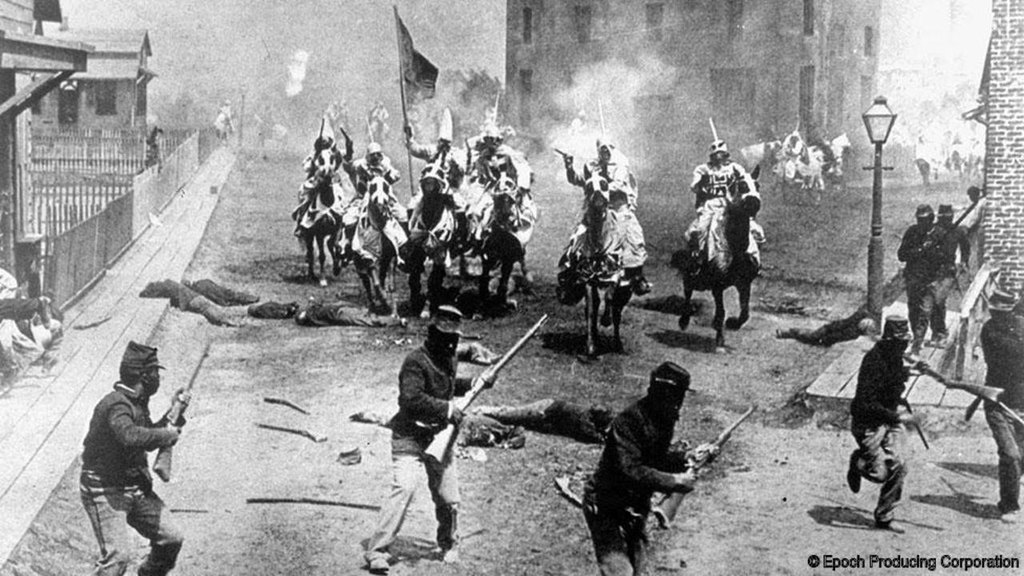
Controversy in films isn’t a new concept emerging way back during the silent era itself. This 1915 film by D.W. Griffith depicting the formation of the infamous Ku Klux Klan and narrating the other side of the interracial storyline spelled trouble from the word go. The African-American society was depicted as witless and lustful with several members of the race involved in heinous crimes. The Klan is shown as a saviour of the masses protecting their Aryan heritage and refusing to bow down before a seemingly new force.
The absence of worldwide marketing prevented the film’s surrounding infamy reaching far and wide. In the United States though, 12 states banned the screening of the film including Iowa. The National Association for the Advancement of Colored People (NACCP) staged protests at every premier, setting up a precedent urging for a national boycott of the movie. The audience didn’t reject the film though with ‘The Birth of a Nation’ being one of the most high grossing movies of the silent era.
Read More: Best One Room Movies of All Time
4. Last Tango in Paris (1972)
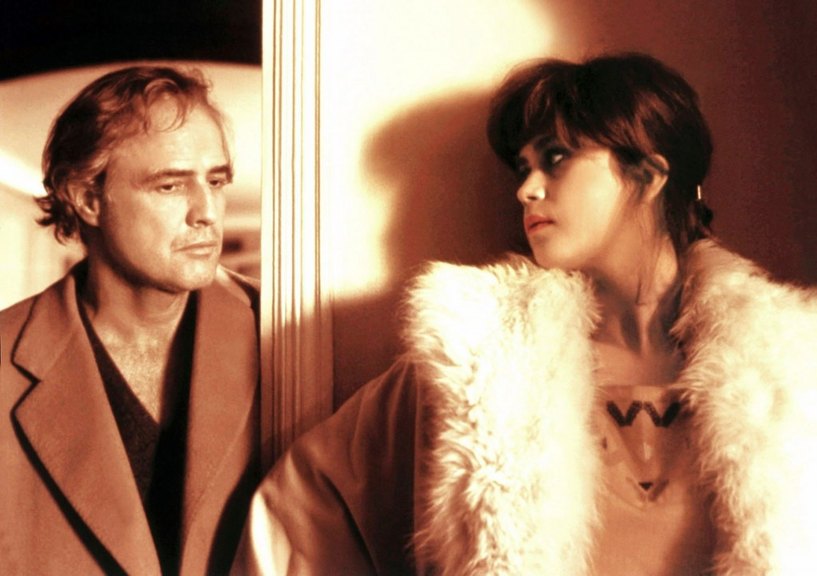
Despite having the great Marlon Brando in the lead, Bernardo Bertolucci’s 1972 film about an American widower having a sexual relationship with a young French woman without knowing her identity and eventually falling in love with her can hardly be classified only as an erotic drama. It was raw and very real with some scenes bordering on the pornographic. Marlon Brando and his opposite Maria Schneider both expressed regret for doing this film. The controversy surrounding it was unveiled in stages as Maria took 2 years to admit her humiliation regarding the sodomy scene and declaring her hatred of Bertolucci much later. Marlon Brando severed all ties with the director feeling exploited after the movie had been made.
Needless to say, it was banned in several countries like Spain and the director’s native Italy and could only be released after several cuts and an ‘X’ certificate in the UK and with an ‘R’ certificate in the liberal US. Bernardo Bertolucci was put on trial in Italy for obscenity and had to serve four months in prison. The raging debate helped a lot though with the film pocketing a tidy sum as people thronged to watch it even crossing borders to get a glimpse of the famed film. Cinematically speaking, it was good, the director’s intention of keeping the feelings real helped in bringing out the subject loud and clear, earning him and Brando deserved Oscar nods.
Read More: Best Character Entrances in Movie History
3. A Clockwork Orange (1971)
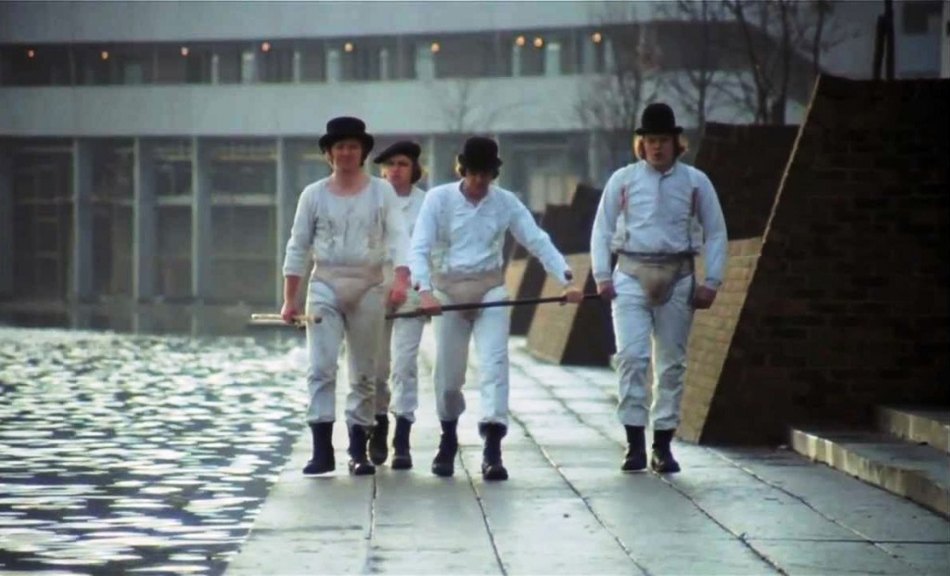
Creativity and art’s reception are highly subjective and it comes as little surprise when one of the best filmmakers of all time bagged a highly controversial film in his kitty. Stanley Kubrick made ‘A Clockwork Orange’ in 1971 to show a futuristic Britain, the dystopian society and the crime surrounding it. Kubrick, being renowned for his attention to detail and his meticulous approach to filmmaking, depicted the crime graphically, drawing out the scenes in a gory manner and chilling the audience with the rawness of the crimes. The violence was intense and bordered on the extreme. The psychopathy seemed real and the juvenile crimes were too hard to bear for some. The rape scene whilst singing ‘Singin’ in the Rain’ was a disturbing one indeed, but that is what Kubrick wanted it to look like.
Reports of violence after watching the film and being ‘inspired’ by it prompted Kubrick to stop its release in Britain. The Roman Catholic fraternity of America was banned from viewing this on the grounds of violent imagery and rape. Nonetheless, it bagged several Oscar nominations and till date is regarded as one of the best works of Stanley Kubrick and one of the best films of all time.
Read More: Most Iconic Movie Posters of All Time
2. L’Avventura (1960)

Arguably the finest movie on this list, ‘L’Avventura’ is one of the most audacious philosophically powerful films ever made. But, the movie did not have a successful start. When premiered at Cannes in 1960, the film was passionately derided by critics and audiences alike. Connoisseurs of cinema will never forget the heart-breaking image of Michelangelo Antonioni and his star Monicca Vitti bursting into tears as the film was relentlessly booed and jeered by the audience during its premiere; they couldn’t bear the humiliation and fled the screening.
The long sequences which purportedly had no narrative value and the cold approach to Antonioni’s film-making were too much for people to stomach, it is said that bored members of the audience wanted to throw something at the screen as Antonioni’s aesthetics were dubbed as “artistic masturbation” and self-indulgence. The deafening booing continued into the next week, as the film won the Jury Prize. However, redemption came soon for Antonioni as his masterpiece had a highly successful theatrical run, and in 1960, just two years into its release, found a place in the prestigious Sight and Sound Poll of the greatest films ever made. Antonioni has since made great works of art, but nothing could surpass the audacity and philosophical profundity of ‘L’Avventura’.
Read More: Best Travel Movies of All Time
1. Irreversible (2002)
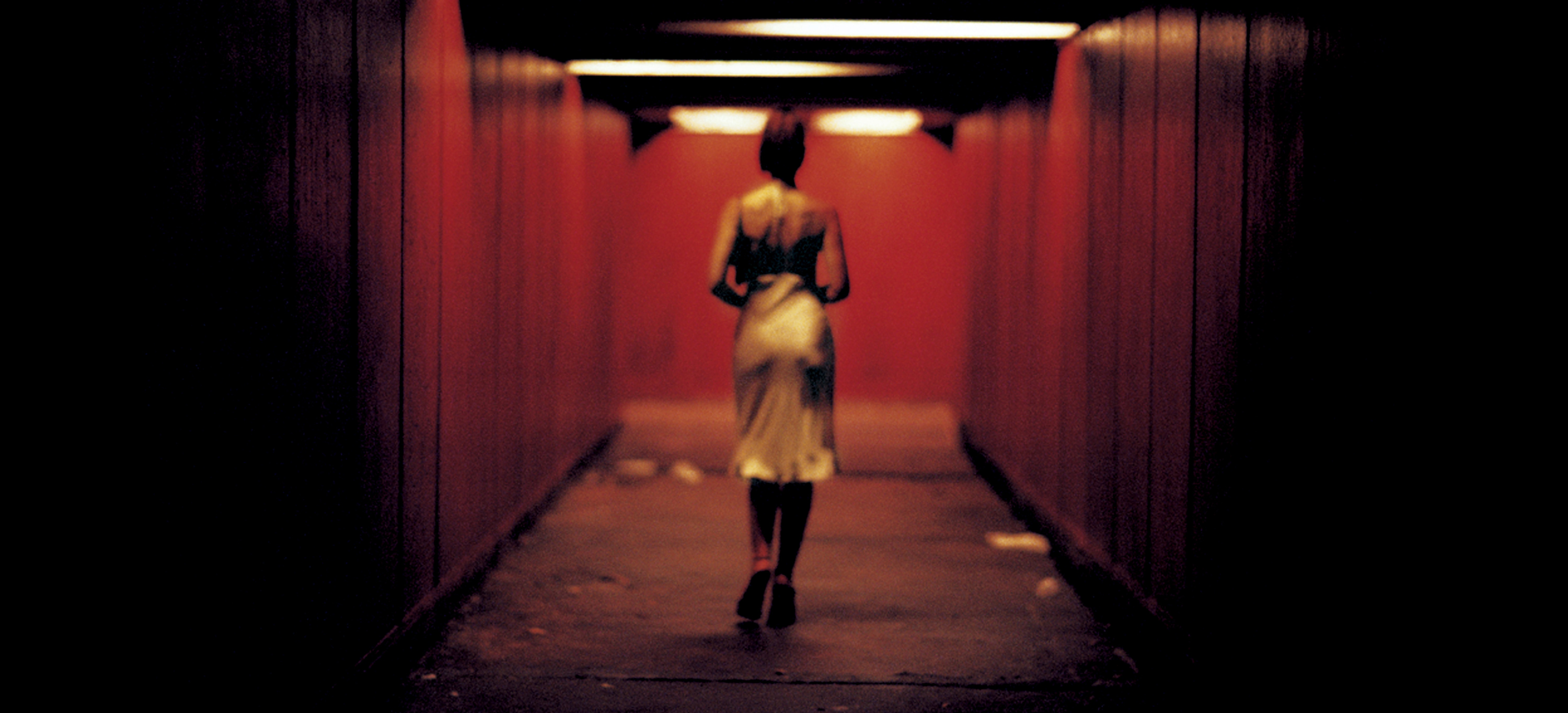
Gasper Noé, much like Lars von Trier, is an artistic provocateur, but at his best, Noé is infinitely more affecting and devastating than Trier. His sophomore feature, ‘Irreversible’ is one of the most powerful cinematic experiences of the century, a movie that could irreparably scar you for life. Noe borrows the reverse chronology narrative from Christopher Nolan’s ‘Memento’ and inventively uses the technique to portray the brutality of pain and suffering and the nihilism around us. It remains, to this day, the most controversial Cannes feature, as the screening was marred by innumerable walkouts and faintings by viewers who found the experience too overwhelming.
The movie was deemed “unwatchable” by a numerous critics and commentators, notably by Roger Ebert, who called it “a movie so violent and cruel that most people would find it unwatchable”. The scenes of graphic violence and the uncomfortably long and brutal rape scene featuring Monica Bellucci are near impossible to watch. Noé’s disorienting cinematography is nauseating and perfectly complements the movie’s nihilist atmosphere and tone. It is an experience that is incredibly powerful; it will always remain controversial, but those accusing it of gratuitous violence should remind themselves of its beautiful closing shots; the serenity and hope in those moments are testament to Noé’s thematic depth and vision.
Read More: Best Movies of All Time

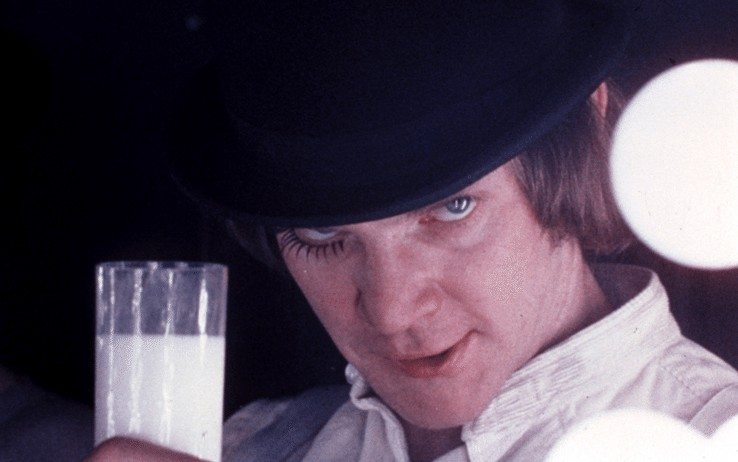
You must be logged in to post a comment.